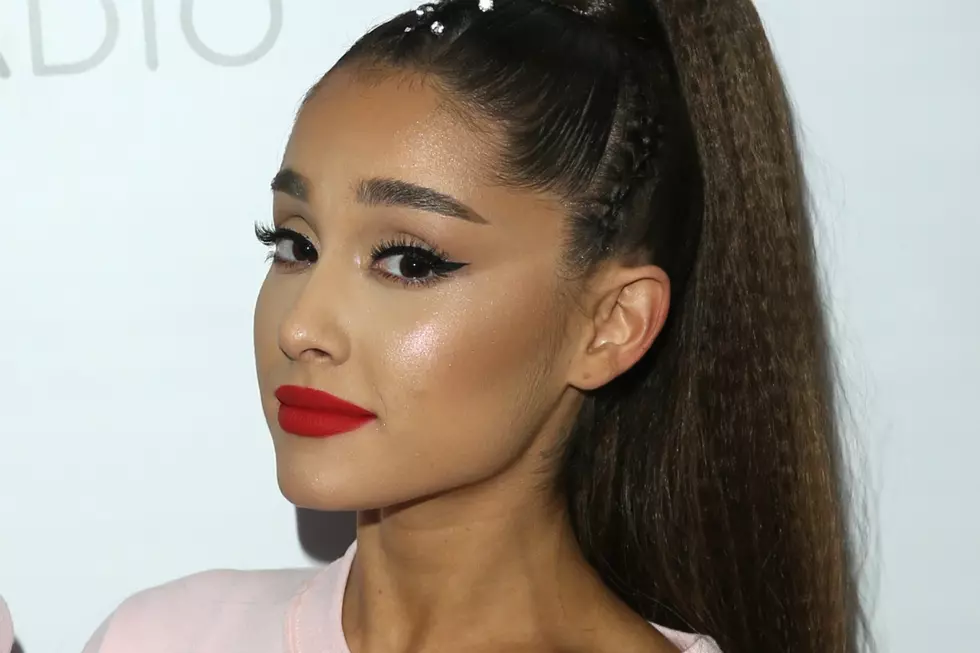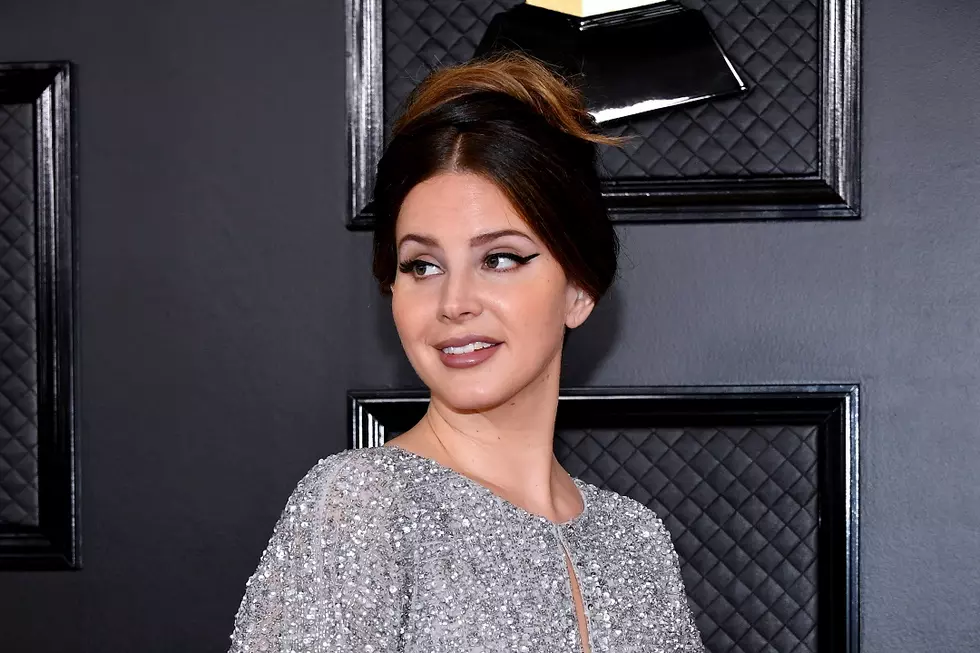
Lana Del Rey Finally Gets Some Respect
It may have taken 26 months, but let the record show that pop singer Lana Del Rey’s divisive major-label debut, 'Born to Die,' has gone platinum. Billboard recently announced that the album sold its millionth copy. Around the same time, Spotify put out a tally of their most-streamed female artists of 2014 so far, with Del Rey coming in third place. For perspective, who was one spot below her on the chart? Beyonce.
So what’s happened here? Why are people still buying and playing the hell out of an artist so widely dismissed two years ago?
Quick recap: Lana Del Rey broke through in fall 2011 with her first single, 'Video Games.' A lot of people really liked 'Video Games.' But a lot more people really didn’t like Del Rey. They said she was fake, and they had evidence: Her mysterious name change, fat record deal and large lips were all suspect. The web churned with speculation. Then her pitchy, nervous 'Saturday Night Live' appearance threw a gasoline-soaked log on the fire. The resulting storm of criticism reached such intensity that when the record came out later that month, it felt like an afterthought. As the New York Times said in their negative review, “This is album as anticlimax, the period that ends the essay.”
But something else happened in the two years since: Del Rey made some good moves (a chart-topping remix, some acclaimed soundtrack contributions), and she got legitimately popular. After the bad press died down, 'Born to Die' marched slowly and steadily to the platinum club, not once dropping off the Billboard 200 chart in 112 weeks.
Hindsight being 20/20, it’s easy to look down on all the early skepticism now that Del Rey’s recovered. But you know, there was something to those “phony” charges. She did ring a little … false. In photos, the girl looked so precise and stylized, it was easy to imagine the elaborate label machinery propping her up just out of view.
Also, what in the world was Del Rey’s target demographic? This singer was vexing not just because she seemed so carefully, lavishly packaged, but in a style that wasn’t popular, for an audience that didn’t (yet) exist. She posed like a preppy space cadet Daria on the album cover. She sang like a less-weathered Adele rocking a bad Xanax habit. Who, exactly, was supposed to flock to this? The whole project looked like a perplexing misplacement of money and resources, born to flop.
But 'Video Games.' Her lead single was a stunner and that rare thing in pop: a new perspective. Most love songs are about either falling in or out of it, but 'Video Games' came out of the long, luxurious time in between. It’s a panoramic view of a great romance that’s just started to stagnate. These two are enveloped by each other, but they won’t work out. Del Rey only hints at this sad fact in the lyrics (consider the difference between “this is fun” and “this is my idea of fun”), but she makes it heartbreakingly clear by her vacant delivery, funeral-march drums and a somber string section welling like tears under the chorus.
None of her other songs cut quite as deep, but no matter. 'Born to Die' was a frequently beautiful and evocative album, from the mighty orchestration blooming out of the title track to the beach sunset longing of 'Summertime Sadness.' Yet it was hard to hear these merits when it first came out, not only because of all the toxic chatter but because the music itself was odd, disorienting. Who was the last female singer to so plainly seek mainstream success with so few of its trends? Next to Top 40 radio’s EDM pep, 'Born to Die'’s blend of low-slung vocals, boom-boom-psshh beats and wobbling UFO sounds were so foreign they may as well have been early Sigur Ros.
Any half-brain could tell you Del Rey had flaws. The album’s surface was littered with them: her cloying upper register, her pitiful passivity, the dragginess, the corniness. And good lord those basic lyrics ... comparing your boyfriend to James Dean is thuddingly obvious self-stylization, like wearing a huge American flag to show how American you are -- which she also did.
But there was something else going on with these songs. They got under your skin and stayed there. It’s a rare thrill to feel your first reaction to a new sound melting away into something different. Remember how Radiohead's 'Kid A' didn't even sound like music, much less good music, when it came out? In Del Rey's case, the album first sounded vaguely retro, then weird and off-putting, then finally just kind of awesome. The cracks and blemishes in her persona were washed out by the broader enjoyment of a style so at odds with the charts, so unconcerned by our expectations. Even a song as initially bizarre and grating as 'Off to the Races' could reveal surprising ambition and eventually make perfect sense. It now has more than 20 million Spotify plays.
When a singer’s glaring flaws just deepen your fascination with her, are they still flaws? Was this music great or awful? Both, neither. It was different, and that made it great.
And now she has a new single, 'West Coast.' It sounds pretty good. Has a nice relaxed vibe, with some cool guitar textures flowing underneath. But these are just first impressions, subject to change. You’ll find no snap judgments on the new music here, because 'Born to Die' gave us a fine lesson buried under that mountain of nasty tweets: new music, if it’s interesting enough, will often draw a conflicted reaction and take a while to figure out. Let it.
Many have compared more recent breakout Lorde to Lana Del Rey. While it’s true both artists are a kind of dark antidote to the mainstream’s relentless bounce, Lorde actively styles herself this way. Del Rey, on the other hand, doesn’t style herself as counter to the mainstream, or counter to anything, really. She just is what she is.
And what is that? Something with far more staying power than early 2012 guessed. Time has cracked a slow smile at this record. It doesn’t come on like an ill-advised marketing scheme or vanity project anymore. Increasingly, 'Born to Die' just sounds like the work of an ambitious girl with a cool vision, who got ahold of enough label money to make it happen. The world came around. Good for her.
More From 99.9 The Point










